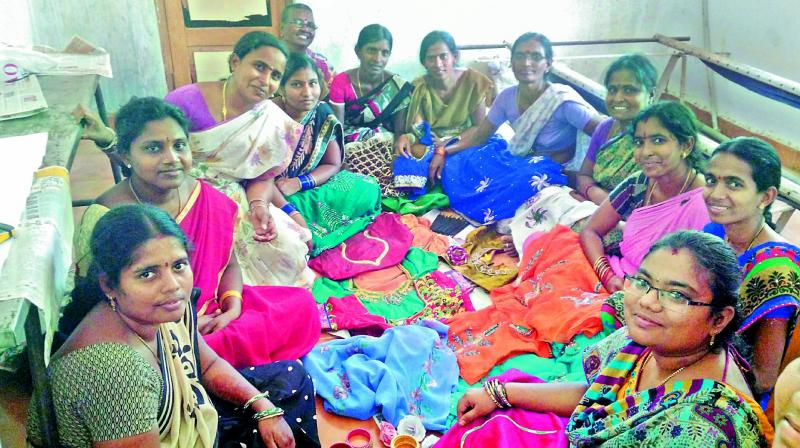Women empowerment: Technology is the key

I, too, need Internet!
Net connectivity is making all the difference for women in Indian villages. Meet the enterprising and ‘connected’ women of T. Sirasapalli village in Visakhapatnam.
If you educate a man you educate an individual, but if you educate a woman you educate a family or sometimes an entire nation,” a wise saying that has been adapted by Google India through its CSR initiative, Internet Saathi. This programme is aimed at bringing digital literacy to women in rural India. One of the major hurdles is low digital literacy rate, especially in rural parts of the country, where many aren’t even aware about the existence of Internet. Even if they are aware, there exists a social stigma about using it, especially for women. Only one out of 10 users is a woman in rural parts, and out of 400 million Internet users in India only 30 percent are women.
Polamarasetty Syamala, a 28-year-old housewife from T. Sirasappalli village in Munagapaka taluk of Visakhapatnam, Andhra Pradesh, had no clue what the Internet was — until a few months ago. Through the Internet Saathi programme, volunteers go to villages across India to identify and train women to leverage the potential of Internet. The Trust helps in identifying the villages and also in paying a stipend of '2,000 per month to these Internet Saathis, who teach other women in their respective villages.
The village Panchayat majorly consist of women heads, including the Sarpanch M. Dhanalaxmi, who motivated many to join the programme. She took it upon herself to make these women understand the importance of the Internet, and how it would benefit them in the future. Syamala was made the Internet Saathi for the village, who, after initial reluctance, is now able to operate a smartphone and also use its various applications for her advantage. She has also trained many other women in her village on how to use text and voice-based search, download informative videos, chat via WhatsApp or use e-mail.
“When the Sarpanch approached me to join the programme and get trained, I felt like she was forcing me as I was reluctant and didn’t want to step out of my house. But once she made me understand the benefits of this program and how it will empower the women of our village to gain new skills and stand on their own feet, I felt encouraged and joined immediately,” Syamala says.
Syamala has also trained other women in her village, who have gained skills like sari weaving, embroidery work, jewellery making, etc. She has also trained B. Govind, a physically challenged man, who has been bed-ridden for 20 years after he met with an accident. He now has learnt to repair electrical appliances and also stitch blouses. Apart from skill learning, these women are also getting information about cashless transactions, basic healthcare agriculture information, jobs, government schemes, etc. Over 60,000 villages in India have been covered under this programme so far. In Andhra Pradesh, the project has reach over 9,000 villages and has trained 4,500 saathis. It plans to cover 50 per cent of India’s villages in the next few years.
Incubate that idea!
For 15 young women, the task of turning their ideas into marketable products and services is being mentored at IIM Bangalore.
It was arguably India’s first customised online and classroom training programme specifically tailored to create tomorrow’s women entrepreneurs. Started in November 2016, the programme launched by the Indian Institute of Management-Bengaluru (IIM-B) in partnership with leading global investment bank, Goldman Sachs, drew 1,700 young women to a five-week online course to systematically identify and test their business ideas,
Fifty women entrepreneurs were selected to attend a three-week boot camp at IIM-B to enable each participant to develop a robust “problem-solution” methodology for ensuring the success and sustainability of their ventures. Finally, 15 women were selected to receive a fellowship of Rs 40,000 per month, while incubating their ideas at IIM-B to start a successful venture on their own. Their ideas cover a wide spectrum including matching volunteers to social causes, specialised healthcare systems, and customised social networks.

